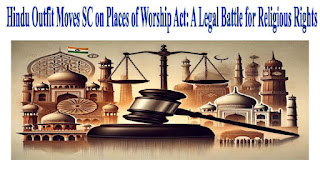“Justice Delayed Is Justice Destroyed”: CJI Surya Kant Reasserts the Constitutional Role of High Courts

Introduction Chief Justice of India Justice Surya Kant has delivered a powerful reminder of the constitutional promise of timely justice, warning that delay does not merely deny justice but destroys it altogether . Speaking at the Fali Nariman Memorial Lecture , organised by the Bombay Bar Association , the Chief Justice underscored the pivotal role of High Courts under Article 226 in ensuring meaningful access to justice for ordinary citizens. His remarks come at a time when mounting judicial arrears, procedural complexity, and geographical barriers continue to undermine the lived experience of constitutional rights. Context of the Address: The Fali Nariman Memorial Lecture The lecture, titled “The Sentinel on Qui Vive: Article 226 as the Guardian of Access to Justice” , was delivered in Mumbai and focused on the constitutional architecture that places High Courts as the first and most effective protectors of individual liberty. Justice Surya Kant’s address was both reflective and r...




.jpg)
.jpg)

.jpg)
.jpg)